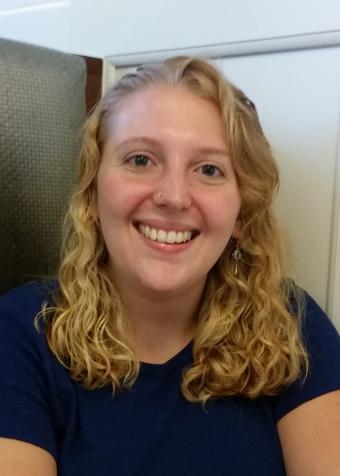“During the school year I try to do [research] three or four hours a day, but you kind of feel sometimes like you are doing a lot of stuff and not doing anything all that well because you are just trying to get so much done,” Grosser said. “It’s been very nice this summer to just be able to sit down and focus on my work.”
What Grosser does in the lab of Anne Hart, professor of neuroscience, is at the forefront of biology. Working with Petri dishes full of tiny C. elegans nematode worms, she’s editing their genes to insert a potential predisposition to amyotrophic lateral sclerosis (ALS). The hypothesis is that with the genes of interest, exposure to physical or oxidative stress makes the neurodegeneration more likely.
After inserting the genes into some of the worms, she then exposes them and unedited (control) worms to different stresses to see the effect on their neurons. She applies a fluorescent dye to the worms to aid those observations.
The experiments don’t always cooperate with the hypothesis, however.
“I was talking to a grad student I work under and said, ‘You know, I’m not really finding the results I expected we would have.’ She said, ‘We don’t expect results. We take whatever the science tells us and we work with that.’”
That’s a valuable tenet of research wisdom that will apply in any future research endeavors. Grosser, who is pre-med, said one of the takeaways from the project will be the skill she’s gaining in not only acquiring data properly, but also in making sense of it.
“I’m hoping that skill will be able to push me through to being a better doctor, a better diagnostician,” she said. “I’m going to be able to listen to all of these unbiased results that I have and be able to use my mind to come up with a conclusion. You need to be detached when you are getting the information but you need to be present to synthesize all that information.”
Grosser has interests outside the lab, of course. There’s the horticulture. She teaches fun science lessons to local high school students. At Brown she’s been studying Arabic, too. But a primary reason she came here is to learn the science that will prepare her for a potential career in medicine. An introductory neuroscience here class drew her to that field in particular.
This summer, though is all about diving deep.
“I’m not the kind of person who likes to do a lot on a surface level,” she said. “I’d rather choose one or two things and really dedicate myself to it.”

